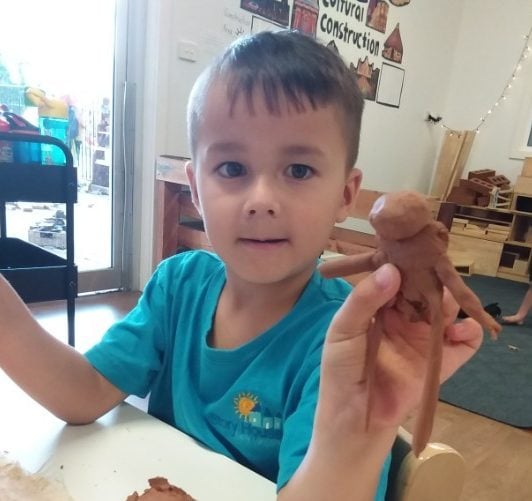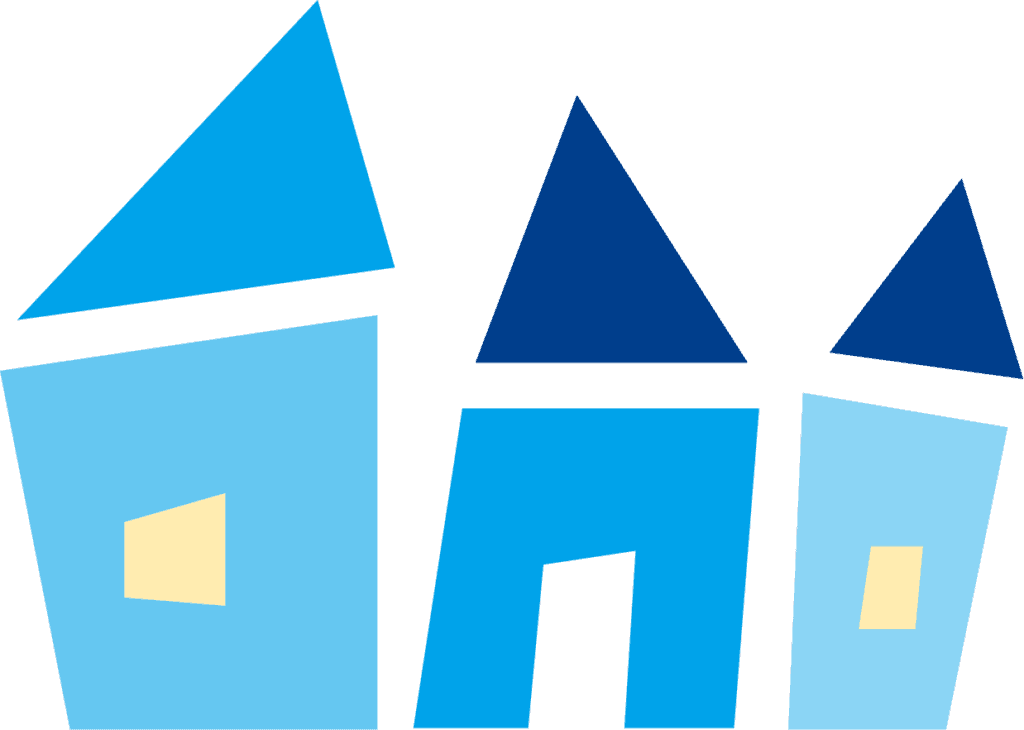In her text ‘Rapunzel’s Supermarket’, Ursula Kolbe discusses the numerous benefits of hands on learning, in particular, playing with clay. In order to gain a deeper understanding of the enrichment that this natural material provides, Kolbe engages with the children, observing the learning that advances over time. In her observations, Kolbe suggests that hands on learning with clay and the creation of three-dimensional structures can lead to communication skills, collaboration with other children and a sense of connecting with the natural earth through the use of touching and manipulating a substance that is derived from the earth.
Delving further in to the concept of communication, clay offers children the ability to successfully communicate ideas, imagination and learnt theories through the creation of three dimensional structures. Kolbe goes on to highlight the potential intricacies of these structures, noting the role of clay colour and how the variety of tones can lead to differences in structures and uses in children’s play; ”white, grey and ochre to reddish brown, pale brown, dark brown and dark grey” . As children create and use clay in a play setting, their imaginations and ideas can be expressed in such detail and expression, and we can see children use clay to transform and reform complex concepts as they develop and grow. Here, clay structures mature from older processes of breaking and squishing and evolve to adding parts to structures, rolling and coiling, human figures and joining pieces together.
In this evolution of engagement, clay exemplifies itself as an invaluable tool for fine motor development and structure formation, particularly due to its flexible and transformative qualities. Looking at the developmental benefits of playing with clay in an educational setting, fine motor skills are constantly strengthened and advancing as the clay promotes muscle stimulation with pinching, squeezing, manipulating, moulding, rolling, placing and squishing. These complex structures also display children’s understanding of balance and movement throughout their exploration of other hands on experiences. These skills are also current in the Early years learning framework as DEEWR suggests that increasingly complex pattern making and balance enhance fine motor movement.
Clear benefits of clay include many forms of creative expression, however in another avenue of communication, clay play encourages children to use collaborative skills in social contexts as it can be manipulated in small or large groups of children and a commentary opportunity can arise. Children are required to use verbal language to communicate ideas to other children in a group while also engaging in skills such as turn taking and leadership in play. Children are able to work together and observe how one large block of clay can be created into many smaller pieces of art. Clay converts from a block into intricate compositions manifested by a group of children in unison. Using clay in a social setting can also be connected to Vygotsky’s theory of social development where it is suggests that groups of children are able to learn new skills and techniques through observing other’s with more advanced skills. Also importantly, Vygotsky’s zone of proximal development is furthered in social interaction, where through clay and hands on learning, peer modelling surpasses the learning of a new skill that can occur independently.
Written by Jessica Jarvis, Educational Leader at Story House Early Learning Aberglasslyn
About Story House Early Learning Aberglasslyn
Just minutes from Rutherford Public School, Story House Aberglasslyn welcomes families from surrounding suburbs including Rutherford, Maitland, Oakhampton and Oakhampton Heights.
Our service offers smaller class sizes, spacious play areas, and modern educational materials.
Our aim is to provide a secure and happy environment where children can develop their intellectual, social, emotional, physical, and language skills to become competent and confident individuals. And for you to feel safe knowing that your child is receiving the best possible care.
For enrolment enquiries or to book a tour, please contact our Service Manager, Amy Kearney
Phone: 02 4932 1329
Email: [email protected]


